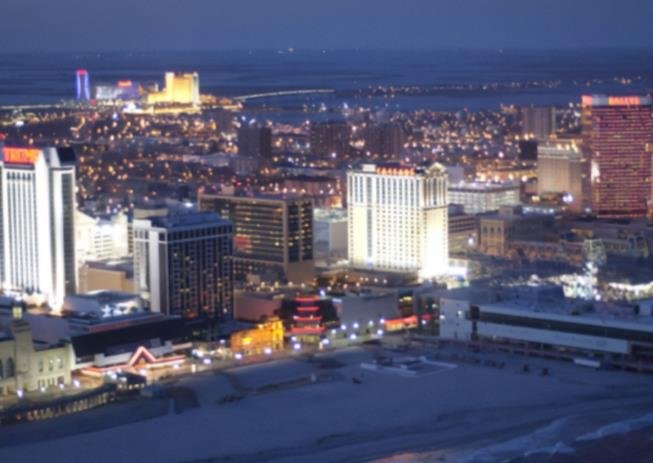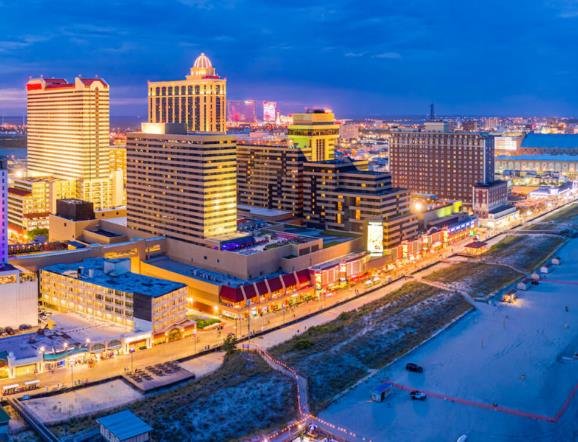A potential smoking ban in Atlantic City’s casinos may not be as financially damaging as previously anticipated. In a significant shift from its 2022 findings, Spectrum Gaming Group now believes that the economic repercussions of removing smoking from casino floors are less impactful than once thought.
This reassessment follows evolving trends in both the gambling industry and societal behaviours. With fewer people smoking than in past years and casinos adapting to the needs of smokers in new ways, the anticipated harm to revenue appears to be much smaller.
The Shift in Spectrum Gaming’s View
Spectrum Gaming Group initially warned that implementing a smoking ban in Atlantic City’s casinos could result in thousands of lost jobs and millions in lost revenue. But their latest report, released last week, paints a different picture. It suggests that the economic impact of a smoking ban may be far less severe than expected.
The shift is largely attributed to a change in both consumer habits and how casinos have adapted. As smoking rates have steadily declined in the United States, the demand for indoor smoking areas in casinos has decreased as well. Data from the American Lung Association reveals that the adult smoking rate in the U.S. dropped to 11.6% in 2022, a drastic reduction from over 20% in 2006. With fewer smokers to accommodate, casinos are seeing less resistance to the idea of a smoke-free environment.
Moreover, the casino industry itself has evolved to meet the needs of both smokers and non-smokers. Many casinos in Atlantic City have already set up open-air gaming areas and outdoor patios where smokers can still enjoy their time at the tables. These efforts help maintain the overall casino experience for everyone while limiting the health risks associated with smoking indoors.

The Broader Context: Changing Smoking Habits
The decline in smoking rates across the U.S. has been a critical factor in this shift in perspective. The American Lung Association’s statistics indicate that, over the last 16 years, the number of smokers has more than halved. This significant reduction in smokers means that the number of casino patrons who would be directly impacted by a ban is relatively small.
At the same time, the pandemic has reshaped how many people approach public spaces. The period of heightened health restrictions made many patrons more comfortable with the idea of outdoor, open-air spaces. People grew accustomed to adjusting their activities to comply with health protocols. Casinos that already offered outdoor spaces found that this change led to more acceptance of smoke-free gaming floors, even for those who still smoke.
Key Points on Atlantic City’s Smoking Policies:
-
Declining Smoking Rates: U.S. adult smoking rate dropped to 11.6% in 2022, a major shift from 20% in 2006.
-
Adaptation by Casinos: Many casinos now offer open-air areas and patios for smokers.
-
Post-Pandemic Changes: Pandemic restrictions helped patrons adjust to non-smoking environments.
-
Less Economic Risk: Spectrum Gaming now estimates a smaller impact on jobs and revenue than initially feared.
The Impact on Casino Revenue
Despite the reduced smoking rates, the financial effects of a smoking ban in Atlantic City are still a topic of concern. The initial fear was that banning smoking indoors would drive away a significant portion of casino revenue, as smokers could potentially choose to avoid establishments that did not accommodate their habit. However, the most recent analysis suggests that this is no longer as much of a threat.
Casinos have been able to implement a number of strategies that reduce the blow to their bottom lines. Offering smoking areas outside allows patrons to enjoy the outdoor air while still engaging with the casino’s offerings. Additionally, the decline in smoking means that the proportion of the casino’s clientele who would have been directly affected by a smoking ban is much smaller.
Recent research from the American Gaming Association (AGA) supports Spectrum Gaming’s revised outlook. According to AGA’s data, most casino operators have seen a minimal decline in revenue following voluntary smoking bans, with some even reporting gains in patronage after introducing smoke-free floors. This is due, in part, to the fact that more people are becoming aware of the health risks associated with smoking, and many non-smokers prefer smoke-free environments.
In fact, studies have shown that non-smokers often feel more comfortable in smoke-free casinos, which can lead to an increase in overall visitation and customer loyalty. Casinos that have taken proactive measures to provide comfortable outdoor smoking areas have been able to maintain their revenue streams while also catering to both smokers and non-smokers.
Key Trends Supporting the Shift:
-
Minimal Revenue Impact: Most casinos that implemented voluntary smoking bans experienced limited or no revenue decline.
-
Health-Conscious Preferences: Non-smokers are more likely to visit and spend time at smoke-free venues.
-
Increased Customer Comfort: Outdoor smoking areas have helped accommodate smokers without disturbing non-smokers.
Looking Ahead: What’s Next for Atlantic City’s Casinos?
While Spectrum Gaming has adjusted its view on the economic impact of a smoking ban, the decision to implement such a policy still lies with lawmakers and individual casinos. The shift in opinion from earlier predictions of mass job losses and revenue declines is promising, but the future of Atlantic City’s casinos remains uncertain. The city’s casino operators will likely continue to monitor customer preferences and economic performance closely.
Moving forward, the focus will likely shift to how casinos can continue to evolve in a way that meets the needs of all patrons. If the trend of declining smoking rates continues, it may make sense for Atlantic City’s casinos to gradually phase out smoking areas altogether. For now, the industry seems to be striking a balance between accommodating smokers and catering to non-smokers, ensuring that both groups enjoy a positive experience.








